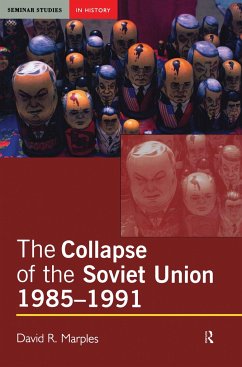
History of the United States (1991-present) Part 1
Versandkostenfrei!
Versandfertig in 6-10 Tagen
84,99 €
inkl. MwSt.

PAYBACK Punkte
42 °P sammeln!
After the dissolution of the Soviet Union in 1991, the United States was the world's dominant military power and Japan, sometimes seen as the largest economic rival to the U.S., was caught in a period of stagnation. China was emerging as the U.S.'s foremost trading competitor in more and more areas. Localized conflicts such as those in Haiti and the Balkans prompted President Clinton to send in U.S. troops as peacekeepers, reviving the Cold-War-era controversy about whether policing the rest of the world was a proper U.S. role. Islamic radicals overseas loudly threatened assaults against the U...
After the dissolution of the Soviet Union in 1991, the United States was the world's dominant military power and Japan, sometimes seen as the largest economic rival to the U.S., was caught in a period of stagnation. China was emerging as the U.S.'s foremost trading competitor in more and more areas. Localized conflicts such as those in Haiti and the Balkans prompted President Clinton to send in U.S. troops as peacekeepers, reviving the Cold-War-era controversy about whether policing the rest of the world was a proper U.S. role. Islamic radicals overseas loudly threatened assaults against the U.S. for its ongoing military presence in the Middle East, and even staged the first World Trade Center attack, a truck bombing in New York's twin towers, in 1993, as well as a number of deadly attacks on U.S. interests abroad












